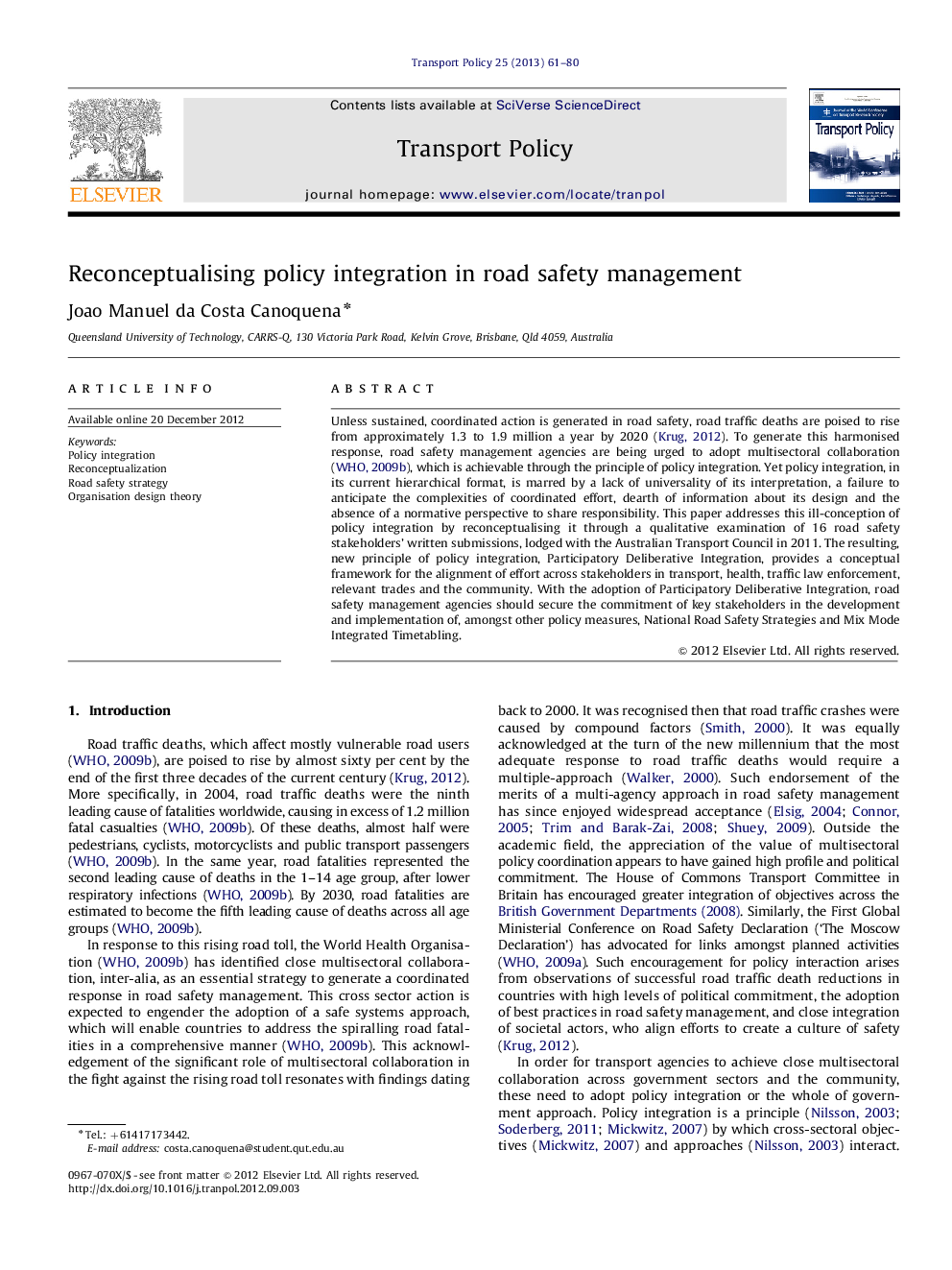| Article ID | Journal | Published Year | Pages | File Type |
|---|---|---|---|---|
| 1065008 | Transport Policy | 2013 | 20 Pages |
Unless sustained, coordinated action is generated in road safety, road traffic deaths are poised to rise from approximately 1.3 to 1.9 million a year by 2020 (Krug, 2012). To generate this harmonised response, road safety management agencies are being urged to adopt multisectoral collaboration (WHO, 2009b), which is achievable through the principle of policy integration. Yet policy integration, in its current hierarchical format, is marred by a lack of universality of its interpretation, a failure to anticipate the complexities of coordinated effort, dearth of information about its design and the absence of a normative perspective to share responsibility. This paper addresses this ill-conception of policy integration by reconceptualising it through a qualitative examination of 16 road safety stakeholders’ written submissions, lodged with the Australian Transport Council in 2011. The resulting, new principle of policy integration, Participatory Deliberative Integration, provides a conceptual framework for the alignment of effort across stakeholders in transport, health, traffic law enforcement, relevant trades and the community. With the adoption of Participatory Deliberative Integration, road safety management agencies should secure the commitment of key stakeholders in the development and implementation of, amongst other policy measures, National Road Safety Strategies and Mix Mode Integrated Timetabling.
► Evaluation of policy integration in road safety management. ► Reconceptualisation of policy integration. ► Framework for the development of NRSS. ► Adaptation of the grounded theory method. ► Participatory deliberative integration
